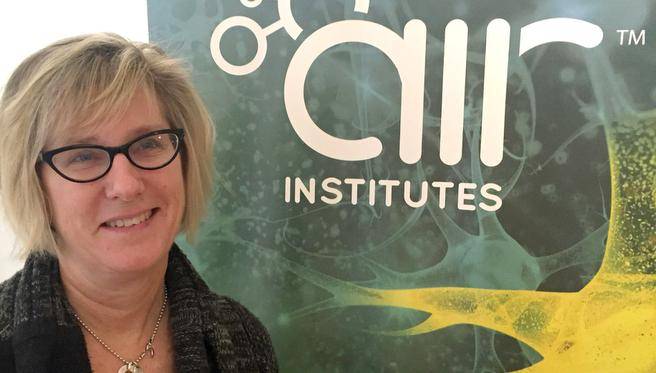The Halifax-based Atlantic Institute for Resilience has partnered with the CAN Health Network in an agreement that allows AIR to collaborate with health organizations across Canada.
AIR was founded in 2014 by psychiatrist Jackie Kinley, the institute’s president and CEO. She aimed to develop programs to boost resilience among workers.
Resilience is the capacity to not only endure but to grow through challenge and adversity, Kinley told Entrevestor in an earlier interview.
“Resilience can be developed. It has several aspects, including mental, emotional and social. Emotional resilience enables us to respond, not react. It helps us know our limits and when we need to slow down and relax.
“Low resilience puts people at risk of illness and injury. And we know the immense costs this assumes in human, social and economic terms.”
Over the last few years, AIR training has been tested in various industries and has shown benefits in psychological safety and reductions in stress and burnout, the company said in a statement.
AIR’s beachhead market is long-term care facilities and health care organizations in Eastern Canada and the United States, where mental health issues can be particularly challenging. One of the first initiatives in the agreement with CAN Health is a commercialization project with Shannex, a provider of living options for older adults.
Shannex will use AIR’s eMpower and Involve programs (the first is for employees in the workplace, the second for those who want to return to work). The programs allow employees to explore and practise real-life situations through software called The Brain Gym, which they discuss with their coach.
For instance, working with the software might reveal that someone at work has crossed an employee’s boundaries. With the help of the coach, they learn how to establish boundaries in life, Chief Operating Officer Kyle Milley told Entrevestor on Wednesday.
The company said statistics show that 1 in 4 employees report being highly stressed, with almost two-thirds saying their work is their primary source of stress. Post-pandemic, high levels of stress, burnout, turnover, and disability costs are impacting many sectors.
The company is financing its small team of four staff and external consultants through its sales at long-term care organizations. In recent months, the growing company has completed Propel’s Traction and Growth program for scaling companies and Invest Nova Scotia’s Accelerate program.
Kinley said resilience training can return people to their earlier, healthier selves.
“We are born well. We’re born wired a certain way, but we pick up habits of mind and behaviour that don’t serve us; they hinder our performance.
“This is about the science of health and performance. We have the power to engineer ourselves. It’s about building our psychological infrastructure.”










